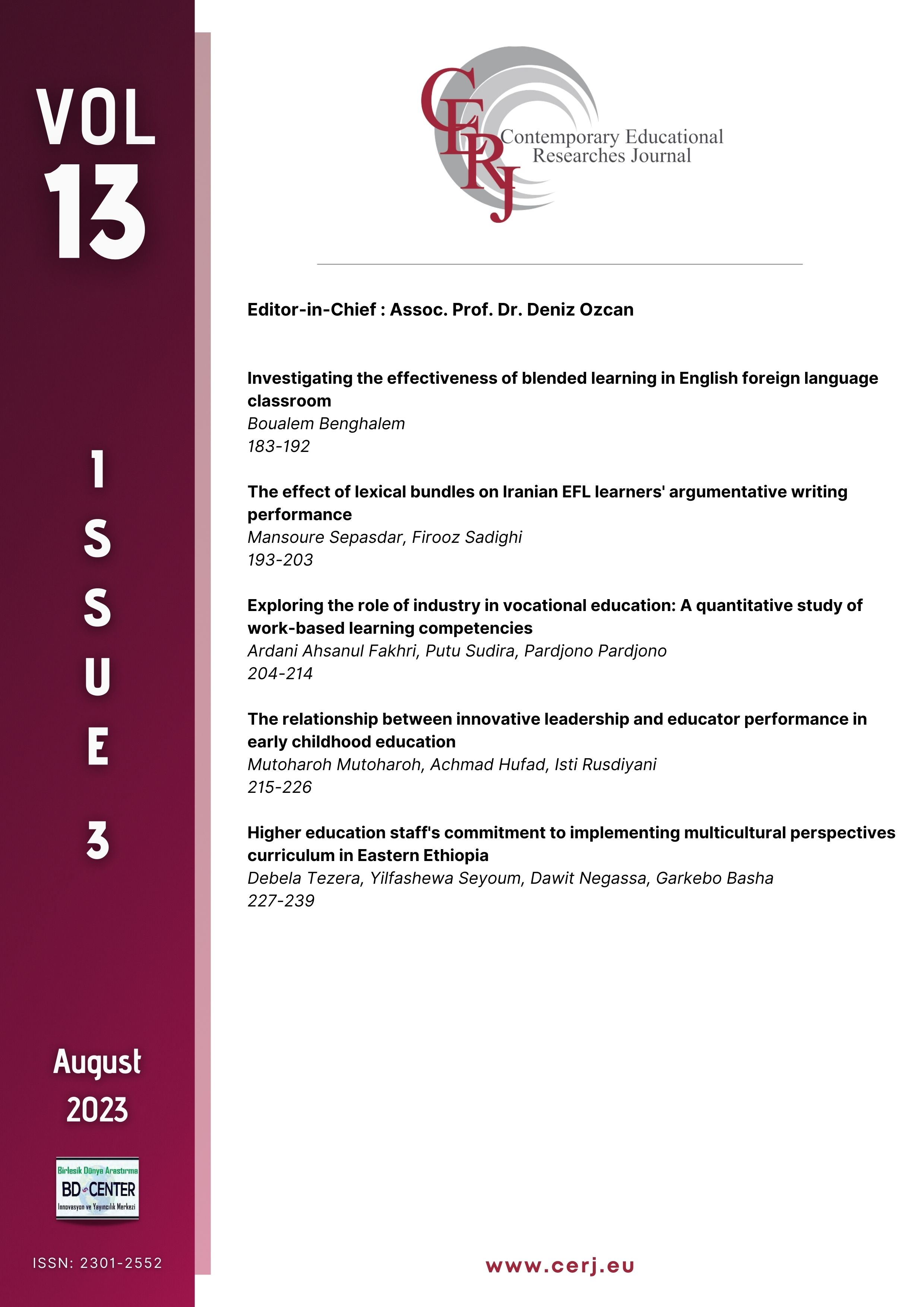The relationship between innovative leadership and educator performance in early childhood education
Main Article Content
Abstract
Educators deal with complex difficulties daily due to economic realities. Educational leadership therefore needs to be more creative and innovative to be effective. This study aims to determine whether there is an influence of innovative leadership in improving the performance of educators in early childhood education institutions in Serang District. This research used quantitative data collection through a survey. The analysis utilized statistical software for the determination of the validity test method, simple linear regression test, coefficient of determination, reliability test, product moment correlation test, and hypothesis test. Based on the result, there is a positive and significant influence of the innovative leadership of the ECE principals towards the performance of ECE educators. For early childhood education institutions located in Serang, Banten, this research can be used as a reference material in considering the selection of school principals.
Keywords: Early childhood education ; educator; innovative; leadership; performance
Downloads
Article Details

This work is licensed under a Creative Commons Attribution-NonCommercial-NoDerivatives 4.0 International License.
Authors who publish with this journal agree to the following terms:
- Authors retain copyright and grant the journal right of first publication with the work simultaneously licensed under a Creative Commons Attribution License that allows others to share the work with an acknowledgement of the work's authorship and initial publication in this journal.
- Authors are able to enter into separate, additional contractual arrangements for the non-exclusive distribution of the journal's published version of the work (e.g., post it to an institutional repository or publish it in a book), with an acknowledgement of its initial publication in this journal.
- Authors are permitted and encouraged to post their work online (e.g., in institutional repositories or on their website) prior to and during the submission process, as it can lead to productive exchanges, as well as earlier and greater citation of published work (See The Effect of Open Access).
